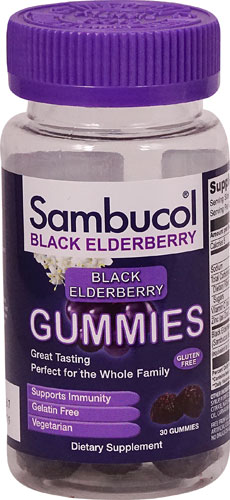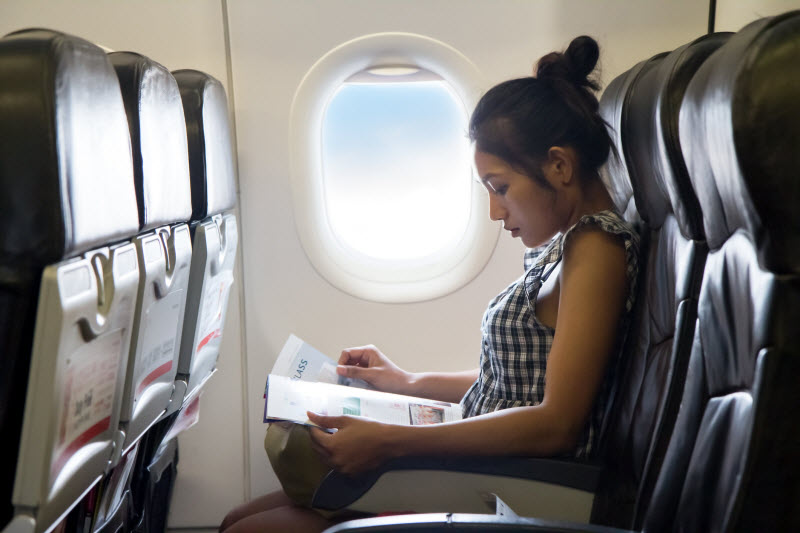Regardless of whether it’s by plane, train or automobile, traveling can take a toll on your mind and body. As a result, many of us become ill during or after a trip, falling victim to ailments like the common cold, the flu or digestive problems.
And if you’re wringing your hands about travel-related sickness, you’re hardly alone. A 2018 survey commissioned by Mucinex, a brand of over-the-counter cold and flu medication, found 67 percent of Americans were worried about coming down with a cold or the flu while traveling for the holidays.
No matter whether you’re driving over the river and through the woods for Christmas, heading to Las Vegas for New Year’s Eve or visiting New York City for a business meeting, here are eight tips for staying happy and healthy.
Healthy Travel Tips
1. Drink plenty of water.
Dr. Rand McClain, chief medical officer at LCR Health, which sells a line of health supplements, notes that staying hydrated is vital to ensuring our bodies don’t give out on us. For instance, consumption of water supports the proper functioning of our immune systems, he says, while dehydration can drag down our mood and our ability to focus.
“Water cleanses the body and the mind, stifles the appetite — travelers eat their way to bad health more than any other method — and keeps you mentally sharp. Plus, every bottle of water is one less drink of alcohol or soda or juice, all of which contain elements that hurt more than help,” says entrepreneur, speaker, author, blogger and podcaster Dre Day, a former professional basketball player.
2. Carve out time for exercise.
Day suggests setting aside at least five to 10 minutes of your day to do yoga, whose benefits include stress relief and improved flexibility. “You can find thousands of routines on YouTube or can make your own — remembering that yoga is a practice, not a science,” he says.
He also recommends twice-a-day walks, even if they’re just around the block.
“Taking a walk satisfies the human needs for sunlight and exercise, while allowing you to explore the area you’re in, in ways you cannot do while driving,” Day says. “You see, hear and feel more when you’re walking.”
3. Consider supplements.
When you’re traveling, your body’s typical supply of nutrients might be depleted, says Nanette Mackenroth, a certified primal health coach. Therefore, you probably should boost your nutrient intake through such vehicles as probiotics, antioxidants, vitamin D, elderberry and magnesium, she says.
4. Create a healthcare travel kit.
Much like a first-aid kit, a healthcare travel kit can come in handy. Items recommended for your travel kit include vitamins, probiotics, over-the-counter remedies and prescription medications.
“There’s nothing worse than feeling under the weather and then having to find somewhere to stock up on health supplies, especially if you’re in a new city. So why risk it?” says McClain, the chief medical officer at LCR Health.
5. Contemplate a flu shot.
Dr. Sarah Favila, a pediatrician with the Dignity Health Medical Foundation in Northern California, recommends getting a flu shot before you take to the roads or take off in a plane. The U.S. Centers for Disease Control and Prevention (CDC) estimates 810,000 flu-related hospital stays and 61,000 flu-related deaths happened during the 2017-18 flu season in the U.S.
6. Practice good hygiene.
Registered dietitian Amanda Kostro Miller, a member of the advisory board for the Smart Healthy Living website, says you should frequently wash your hands, especially before you eat and after you use a restroom. If you’re unable to wash your hands with soap and water, carry hand sanitizer with you as a backup.
Furthermore, Favila suggests that aside from clothes and toiletries, you should pack antibacterial wipes to clean public surfaces, such as airplane trays or hotel TV remotes, before you use them.
Dr. Holly Phillips, a board-certified general internist in New York City and a medical expert for the RxSaver by RetailMeNot coupon app, adds that in order to lower your odds of picking up a cold or flu virus, resist the temptation to touch your face, nose or mouth. Repeatedly touching them can transfer these viruses from your hands.
7. Stash some snacks.
When you’re out and about after you reach your destination, remember to bring along snacks, like protein bars or nuts, to curb your appetite and prevent bad hunger-induced food choices, says Candice Seti, a licensed clinical psychologist, certified personal trainer and certified nutrition coach in Southern California.
8. Put yourself on an indulgence diet.
Although appetizers, desserts, adult beverages and other special treats should be on your travel menu, they shouldn’t eat up the entire menu, Seti says.
“Try to limit indulgences to no more than once a day and explore other ways to indulge besides food, such as massages or sleeping in,” she says.




